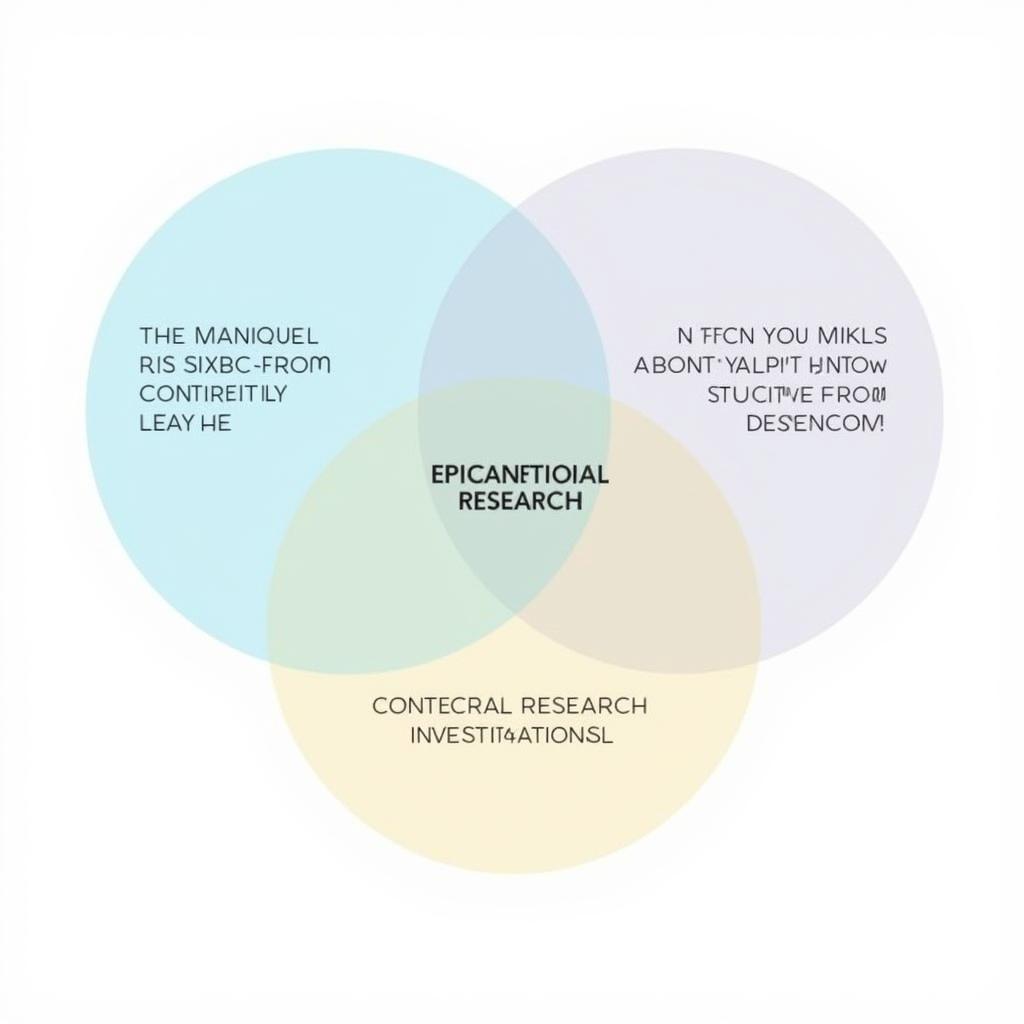Conceptual Research delves into abstract ideas and concepts, forming the bedrock for understanding phenomena, including those within the paranormal realm. It’s about exploring possibilities, building theoretical frameworks, and laying the groundwork for more concrete investigations. This type of research is vital in fields like paranormal investigation, where tangible evidence can be elusive and where establishing a theoretical understanding is crucial.
definition of conceptual research
Conceptual research often begins with a question, a curiosity about the unknown. For instance, what constitutes a “ghost”? Is it a residual energy imprint, a conscious entity, or something else entirely? Conceptual research allows us to explore these questions, drawing from existing knowledge, philosophical discourse, and observed patterns, even when concrete evidence is lacking. It’s about connecting the dots, even when some dots remain invisible. This exploration often involves examining existing literature, analyzing case studies, and developing new theories to explain observed phenomena. What are the common threads in reported hauntings? Are there cultural influences that shape our perceptions of the paranormal? Conceptual research helps us answer these questions and refine our understanding.
Conceptual Research: Building a Framework for Paranormal Investigation
Conceptual research within paranormal investigation is particularly important because it provides a framework for understanding seemingly inexplicable events. It allows us to conceptualize research in a way that moves beyond anecdotal evidence and toward a more structured approach. This involves creating a conceptual framework for research that can guide future investigations and help us interpret findings. A well-defined conceptual framework can be invaluable in focusing research efforts and ensuring that investigations are conducted systematically. It also helps to avoid biases and preconceived notions that can hinder objective analysis.
The Importance of a Conceptual Framework in Research Sample
Examining a conceptual framework in research sample can provide valuable insights into how conceptual research is applied in practice. A sample framework might outline the key concepts related to a specific paranormal phenomenon, such as Electronic Voice Phenomena (EVP). It could explore the potential relationship between electromagnetic fields, recording devices, and the alleged voices captured in EVP recordings. By analyzing such a framework, we can learn how to construct our own frameworks for other paranormal phenomena. This framework provides a foundation for formulating testable hypotheses and designing experiments to gather empirical data.
Dr. Evelyn Reed, a leading parapsychologist, emphasizes the importance of conceptual frameworks: “Without a solid conceptual foundation, paranormal research risks becoming a collection of anecdotal stories rather than a scientific pursuit. A well-defined framework allows us to connect seemingly disparate pieces of information and build a coherent understanding of the paranormal.”
Conceptual Research Methods and Applications
what is the conceptual framework in research is a question that often arises when discussing this research methodology. The conceptual framework acts as a roadmap, guiding the research process and providing a structure for interpreting findings. It allows researchers to identify the key variables, their relationships, and the potential mechanisms that might explain observed phenomena. In the context of Paranormal Research, this might involve exploring the relationship between reported hauntings and the history of a location, or examining the psychological factors that might contribute to paranormal experiences.
Addressing Common Misconceptions about Conceptual Research
One common misconception is that conceptual research is purely theoretical and has no practical applications. In reality, conceptual research forms the foundation for all empirical research. It provides the theoretical framework that guides the design of experiments and the interpretation of results. Professor Alistair Grey, a renowned expert in paranormal studies, states: “Conceptual research provides the intellectual scaffolding upon which we can build rigorous scientific investigations into the paranormal. It helps us ask the right questions and develop testable hypotheses.”
 Addressing Misconceptions about Conceptual Research
Addressing Misconceptions about Conceptual Research
In conclusion, conceptual research is a critical component of paranormal investigation, providing a framework for understanding and exploring the unexplained. It allows us to formulate theories, develop hypotheses, and design research strategies that can move us closer to understanding the mysteries of the paranormal. By embracing conceptual research, we can move beyond mere speculation and towards a more rigorous and scientific approach to exploring the unknown. Conceptual research is the key to unlocking the secrets of the paranormal.
FAQ
- What is the difference between conceptual research and empirical research?
- How can I develop a conceptual framework for my paranormal investigation?
- What are some common examples of conceptual research in the paranormal field?
- Why is conceptual research important for understanding the paranormal?
- What are the limitations of conceptual research?
- How can I use conceptual research to improve my paranormal investigations?
- What resources are available to help me learn more about conceptual research?
Need Help with Your Paranormal Research?
Contact us for support:
Phone: 0904826292
Email: research@gmail.com
Address: No. 31, Alley 142/7, P. Phú Viên, Bồ Đề, Long Biên, Hà Nội, Việt Nam
Our customer service team is available 24/7.